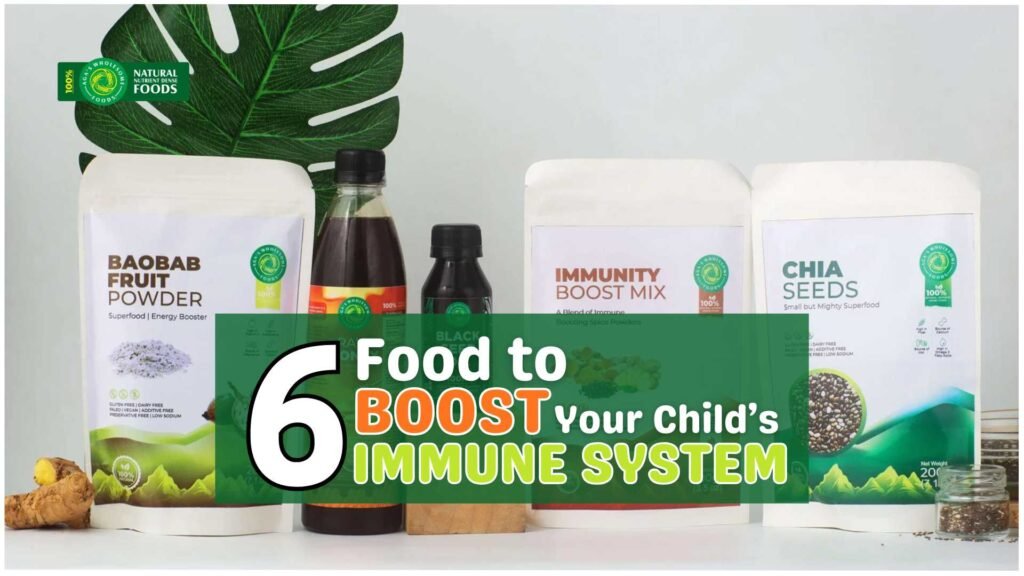As kids head back to school, many parents worry about runny noses, coughs, and the inevitable bugs that spread in classrooms. While no food can guarantee your child won’t get sick, certain nutrient-rich foods can help support a stronger immune system alongside healthy habits like sleep and hand-washing.
You can’t control what happens in the playground, but you can strengthen your child’s defenses from home. The most reliable way is not in a pharmacy, it’s on their plate. A diet built around nutrient-rich foods gives your child’s immune system the tools it needs to fight off infections and bounce back quickly when exposed to germs.
Here are six foods every Nigerian parent should prioritize this term.
1. Fruits and Vegetables: Immune Boosting Foods for Kids
Colourful fruits and vegetables are loaded with vitamins, antioxidants, and fiber that strengthen the body’s natural defenses. Vitamin C from oranges and strawberries helps white blood cells do their job. Vitamin A from carrots and leafy greens supports healthy skin and tissues, which act as the body’s first line of defense against germs.
Easy ideas:
- Add berries to your child’s breakfast cereal or yoghurt.
- Pack carrot sticks and cucumber slices in lunchboxes.
- Blend spinach or kale into fruit smoothies.
The beauty of the local markets is that affordable options are always in season. Oranges, bananas, pineapples, carrots, ugwu, cabbage, and bell peppers are powerful, everyday ingredients that do more than just “fill the plate.” They help the body resist common colds and speed up recovery when illness strikes.
Shortcut option: If fresh fruit isn’t always available, a natural vitamin C source like Baobab Fruit Powder can be stirred into smoothies or yoghurt.
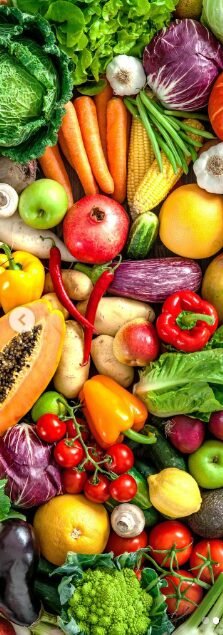
Read Also: Healthy To Make Nigerian Breakfast for Kids
2. Healthy Fats to Support Your Child’s Immune System
Healthy fats are essential for the absorption of vitamins A, D, E, and K, all of which play a role in immune function. They also help repair cells and reduce inflammation.
They are essential for your child’s growing brain and immune system. Nuts like peanuts and cashews, seeds like chia and flax, egusi seeds, and creamy avocado are rich in Omega-3 fatty acids that support both brain development and immunity.
Easy ideas: You can spread mashed avocado on toast, mix chopped nuts into oatmeal, and sprinkle seeds over salads or yoghurt.
Kid-friendly option: Chia seeds are versatile and mild in flavour. Sprinkle them over cereal, blend them into smoothies, or make simple chia puddings with milk.
👉 Shop Aga’s Chia Seeds for ultimate quality perfect for growing children.
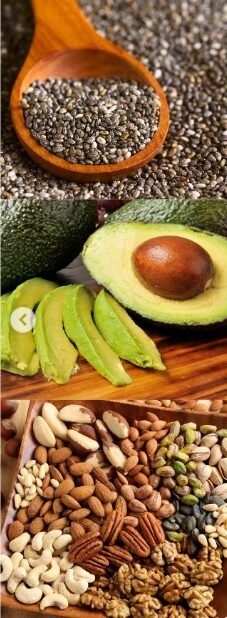
Chia Seeds
Net Weight: 200g
Chia seeds are high in dietary fiber which aids digestion, and is also nutrient dense.
The protein and fiber in Chia Seeds keeps you fuller for longer and supports normal functioning of the digestive tract.
Adding a sprinkle of Chia seeds to your meal is a great way to boost the nutrient profile.
3. Whole Grains for a Healthy Diet and Stronger Immunity
Whole grains provide a steady release of energy, fiber, and essential B vitamins that support the immune system and keep kids focused in school. They also promote a healthy gut, which is closely linked to immune strength.
Grains like fonio (acha), millet, rolled oats, guinea corn, and ofada rice provide the dietary fiber that supports gut health and sustained energy throughout those long school days.
Here’s something many parents don’t know: your child’s immune system is closely connected to their gut health. A healthy gut means better protection against the infections floating around the classroom.
When making pap for breakfast, resist the urge to sieve it completely. Keeping some of that natural fiber makes it far more nutritious and filling. Your child will have steady energy that lasts until lunch time.

4. Protein-Rich Foods That Help Prevent Colds in Kids
Protein is vital for growth, repair, and the production of antibodies. Both animal and plant-based proteins can support a healthy immune response.
It is the building block your child’s body uses to grow strong muscles and maintain a robust immune system. Beans, lentils, bambara nuts (okpa seeds), fish, chicken, beef, and Greek yogurt should be regular features in their meals.
Including protein in every meal helps your child feel satisfied longer and gives their body the raw materials needed to fight off infections.
A simple bowl of beans and corn (agbado) makes a complete protein that’s both filling and immune-supporting. It’s also budget-friendly and can be prepared in large batches for the week.
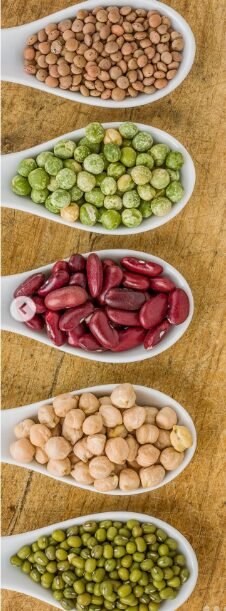
Read Also: Gut-Friendly Smoothie Recipe for Bloating and Digestion
5. Vitamin C-Rich Foods for Children’s Immune System
Vitamin C is well-known for helping the body fight infections. It supports white blood cells and helps wounds heal. While supplements are popular, kids usually get enough vitamin C from a varied diet.
It is one nutrient you definitely don’t want your child to miss during school season. It helps ward off infections, keeps their skin healthy, and maintains their energy levels throughout the day.
Easy ideas: Pack citrus fruits like oranges, tangerines, or kiwi in lunchboxes. Make fruit salads with strawberries and pineapple or/and Add chopped tomatoes and peppers to pasta sauces.
Extra option: Baobab Fruit Powder is a natural, shelf-stable source of vitamin C you can keep on hand for days when fresh fruit is limited. Baobab powder makes it an incredibly efficient way to boost your child’s daily intake. With just half a teaspoon of baobab powder stirred into juice, pap, or even plain water, you can get more Vitamin C than several oranges. It has a pleasant, slightly tart taste that most children enjoy.
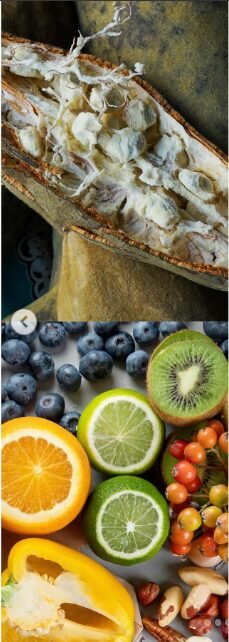
👉 Shop Aga’s Baobab Powder – every Nigerian kitchen should have this superfood on hand.
Baobab Fruit Powder
Net Weight: 200g
Baobab fruit powder has the highest antioxidant content of any fruit which aids to boost the immune system and prevent disease. A tablespoon serving of Baobab provides over 100% of your daily Vitamin C content. Add this to 1 cup of water for an instant natural energy drink.
6. Natural Ways to Strengthen Immunity in Children
Certain herbs and natural foods like garlic, ginger, and turmeric have long been used to support immune health. While they won’t prevent illnesses on their own, they can complement a healthy diet.
Sometimes, despite your best efforts with food, your child’s immune system needs that little extra support. This is where time-tested natural boosters come in.
Black seed oil has been used for generations across Africa and the Middle East to relieve flu symptoms and strengthen the body’s resistance to infections. Our Immunity Boost Mix combines herbs and spices specifically chosen for their immune-supporting properties.
Mix these natural boosters into your child’s morning routine. Add them to pap, blend into smoothies, or simply give them with a spoonful of honey.

👉 Shop Aga’s Black Seed Oil and Immunity Boost Mix for natural protection without the side effects of artificial supplements.
Immunity Boost Mix (Golden Milk Powder)
Net Weight: 100g
Our Immunity Boost Mix (Golden Milk Powder) is a warming, immune boosting blend made from superfoods and spices. Turmeric root, the main ingredient in this blend is powered by black pepper for increased bioavailability, alongside other antioxidant rich spices.
The anti-inflammatory ingredients in our Immunity Boost Mix supports healthy joints, promotes good sleep and relieves cold and flu.
Beyond Food: Other Ways to Support Immunity
A strong immune system is not built on food alone. Daily lifestyle habits play an equally important role in keeping children healthy and resilient:
- Sleep: During sleep, the body releases proteins called cytokines that help fight infections and inflammation. Without enough rest, the immune system is weaker and recovery from illness takes longer. Most school-aged children need 9 – 11 hours each night to stay alert and protected.
- Hydration: Water is more than a thirst quencher, it helps transport nutrients throughout the body, flushes out toxins, and keeps mucous membranes moist. Well-hydrated kids are better able to trap and clear germs before they take hold.
- Hygiene: Simple routines like handwashing before meals and after school remain one of the most effective ways to prevent the spread of colds and flu. Teaching kids to cover coughs and avoid touching their faces also reduces the chances of infection.
- Vaccines: Nutrition can support the immune system, but vaccines train it. Keeping children up to date with recommended vaccines protects them not only from everyday illnesses but also from serious diseases that food alone cannot guard against.
That said…
Good nutrition is one of the most practical ways to help your child stay healthy during the school year. Focus on variety, balance, and consistency rather than any single “superfood.” Small, everyday choices add up over time.
School germs are inevitable, but constant sick days don’t have to be your family’s reality. By making these six food groups a regular part of your child’s diet, you’re building their immunity from the inside out.
You don’t need to prepare elaborate meals or break your budget. You can start small: add an orange to breakfast, choose ofada rice over white rice, sprinkle some chia seeds into their pap, or stir baobab Fruit powder into their evening drink. These simple, consistent changes add up to powerful protection.
Shop Aga’s Immunity Combo
To make immune-boosting nutrition easier for busy parents, we’ve created the Aga’s Immunity Combo. This carefully curated bundle includes:
- Baobab Fruit Powder – concentrated Vitamin C in every spoonful
- Black Seed Oil – natural protection against flu and infections
- Chia Seeds – healthy fats and fiber for growing brains
- Raw African Honey – natural sweetener and immunity supporter (not for children under 1)
- Immunity Boost Mix – herbal blend for daily immune support
Each combo pack comes with 10 free immune-boosting e-recipes with practical meal ideas you can start using immediately.
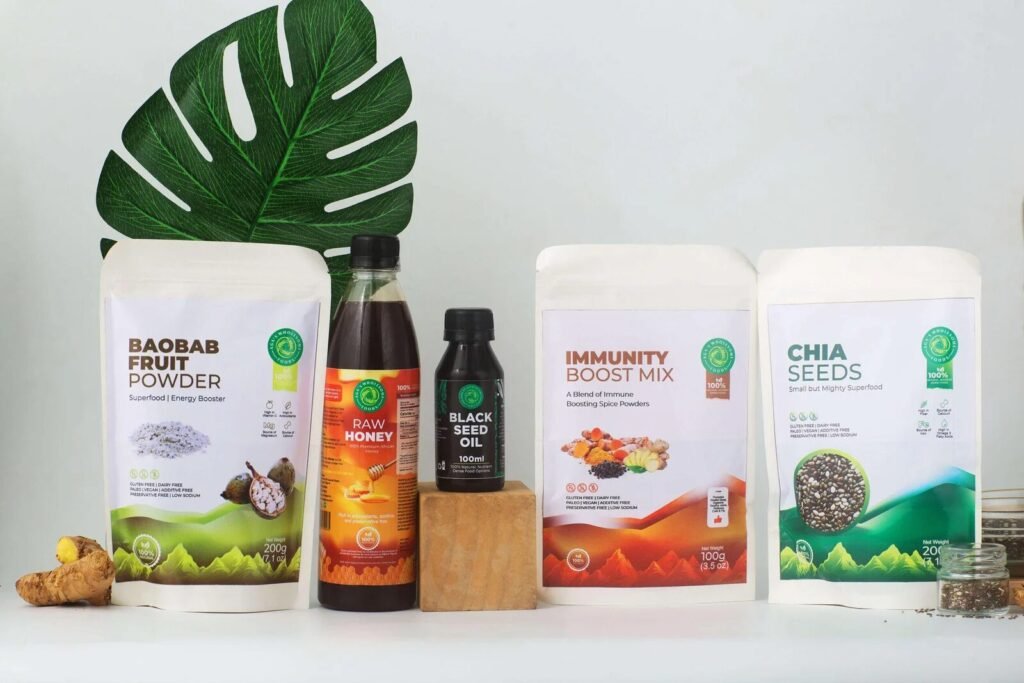
👉 Order your Immunity Combo today and give your child the nutritional armor they need to thrive this school season.
Disclaimer
This article is for educational purposes only and should not be taken as medical advice. Please consult your child’s doctor before making major changes to their diet or using supplements.

